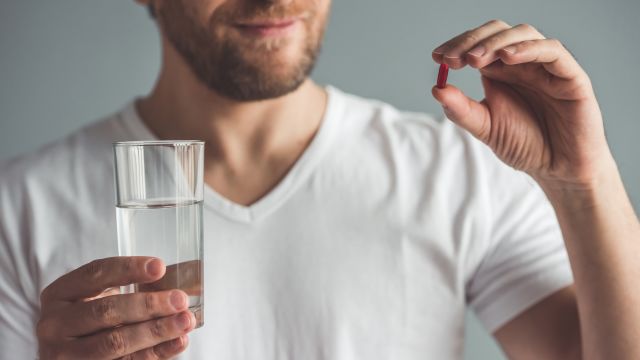You may find the symptoms of an enlarged prostate unpleasant—frequent urination is among the most common—but do they require treatment? It depends on the severity of your symptoms. Up to one-third of mild benign prostatic hyperplasia (BPH) cases clear up without any treatment at all, according to the National Institute of Diabetes and Digestive and Kidney Diseases (NIDDK).
If your enlarged prostate symptoms are more severe, or they cause frequent urinary tract infections or other complications, work with a urologist for relief. These are some of your options to treat benign prostatic hyperplasia:
Make a few lifestyle changes. One of the natural treatments for enlarged prostate involves simply changing a few habits. Avoid drinking any beverages at least an hour before bedtime to lessen the chance of nighttime bathroom visits. Also go easy on caffeine and alcohol. Both can aggravate your need to urinate.
Check your meds. If you take a diuretic for high blood pressure or kidney disease, ask your healthcare provider if you can take a lower dose, since the diuretic can also cause frequent urination. Over-the-counter decongestants and antihistamines can also contribute to enlarged prostate symptoms.
Ask about prescription drugs to treat an enlarged prostate. Alpha-blocker drugs relax prostate muscles, making it easier to urinate, and enzyme inhibitors help shrink the size of the prostate gland. According to the NIDDK, using a combination of the two types of drugs may work better than either drug independently to halt the progression of benign prostatic hyperplasia.
Consider surgery to treat an enlarged prostate. When lifestyle measures and medication aren't enough, there are surgical treatment options. Minimally invasive procedures include the following:
- Use of an electrical current to vaporize tissue (transurethral electrovaporization of the prostate, or TUVP)
- Heating tissue directly with needles (transurethral needle ablation of the prostate, or TUNA)
- Heating tissue indirectly with microwave energy (transurethral microwave therapy, or TUMT)
- Using a laser or focused ultrasound to destroy tissue
- Using a stent to keep the urethra open
Traditional surgical techniques include cutting away prostate tissue, making incisions in the bladder neck to relieve pressure in the gland, or completely removing the tissue (open surgery).
Drug and surgical treatments for enlarged prostate come with potential side effects, including a small risk for erectile dysfunction. Be sure to discuss possible side effects with your healthcare provider as you weigh the benefits of different BPH treatments.






